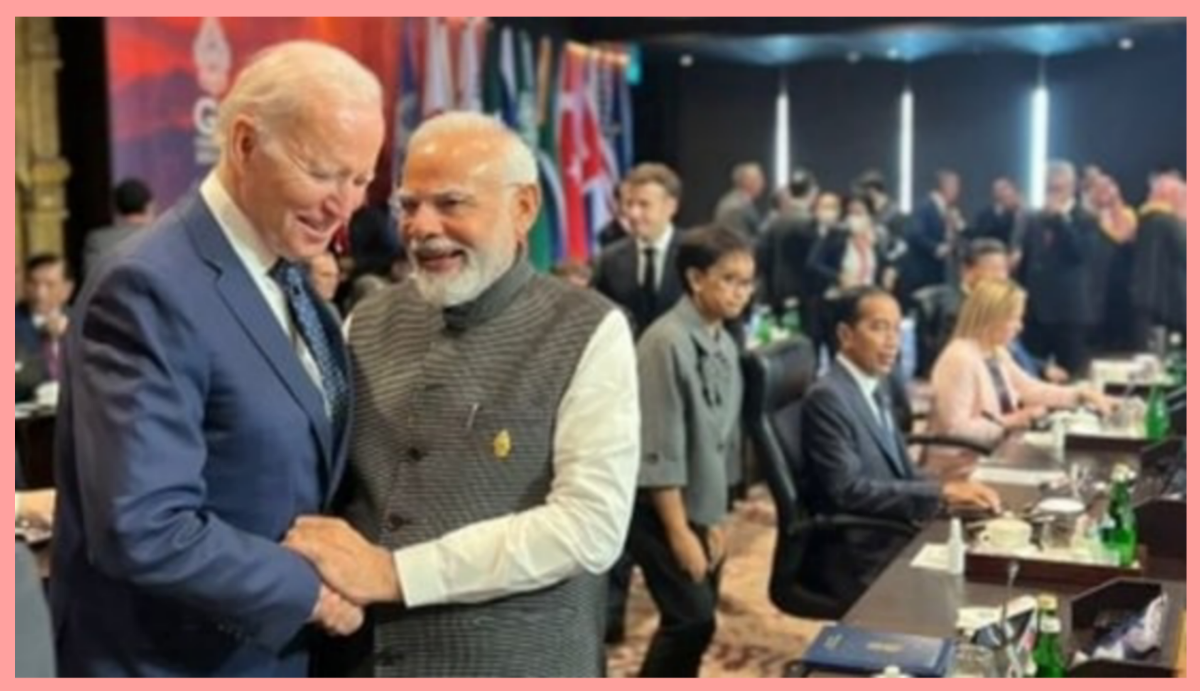Modi's Global Ascent
 |
| Narendra Modi At G20 |
Narendra Modi's journey to becoming India's Prime Minister is a remarkable story. Hailing from a humble background as a chaiwalla (tea vendor) and carrying his OBC (Other Backward Classes) credentials, he defied societal odds to rise to the highest echelons of power in India. This journey reflects not only his personal determination but also the opportunities that India's vibrant democracy offers. Modi has effectively leveraged India's burgeoning market and the West's concerns about China's influence in the region. For instance, the India-West Asia-Europe Corridor, announced during the Delhi Summit, exemplifies India's role in countering China's Belt and Road initiative.
Modi's Diplomatic Acumen
Despite significant ideological differences with India's first Prime Minister, Jawaharlal Nehru, Modi displayed diplomatic skill at the G20 Summit. While Nehru was a staunch secularist who championed minority rights, Modi is known for his Hindu civilizational project. Nonetheless, Modi managed to navigate the complexities of global politics, maintaining India's neutrality during the Russia-Ukraine conflict. This diplomatic finesse demonstrated his adaptability and his ability to find common ground with nations holding contrasting viewpoints.
The Delhi Declaration
The G20 Summit in Delhi marked a significant moment in India's diplomatic history. The successful adoption of the Delhi Declaration showcased India's adept diplomacy. One of the standout achievements was India's ability to maintain its neutral stance in the Russia-Ukraine war, which was expected to cast a shadow on the summit. The fact that India did not condemn Russia for aggression in the declaration was a testament to its diplomatic prowess. Additionally, India played a critical role in bringing the African Union into the G20, highlighting its commitment to representing the Global South on the international stage.
India's Consensus Challenge
As India enters an election season, the political landscape is characterized by growing bitterness and division. The success Modi achieved at the G20 Summit raises a critical question: can he replicate this level of consensus and diplomacy within the domestic political arena? Achieving consensus at home is often more challenging due to the diverse and pluralistic nature of Indian society.
The Need for Domestic Consensus
In a country as diverse as India, achieving political consensus is essential for effective governance. It is not only a challenge for Modi but also for the opposition. Both sides must recognize the importance of compromise and cooperation as they prepare for the upcoming elections. The ability to bridge divides and work together will determine the nation's political trajectory.
Conclusion
Narendra Modi's achievements on the global stage, exemplified by the G20 Summit's success, are indeed commendable. However, the true test of leadership lies in addressing the deepening faultlines and fostering consensus within the country. As India heads into another election cycle, Modi's capacity to build domestic unity may prove just as vital as his international diplomacy skills for securing his political future and shaping the nation's destiny.














0 Comments